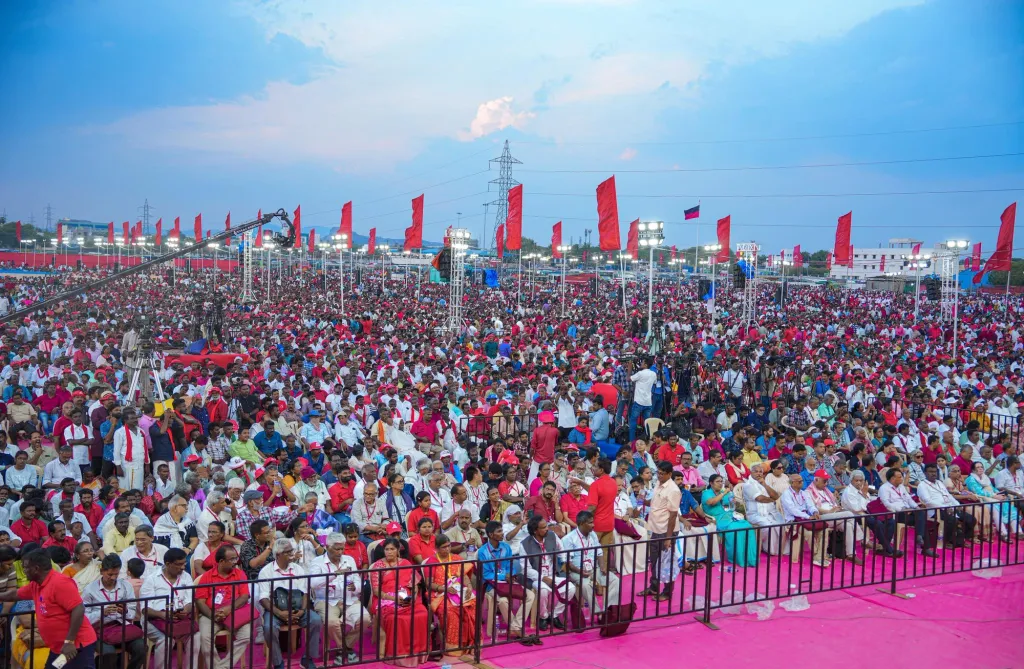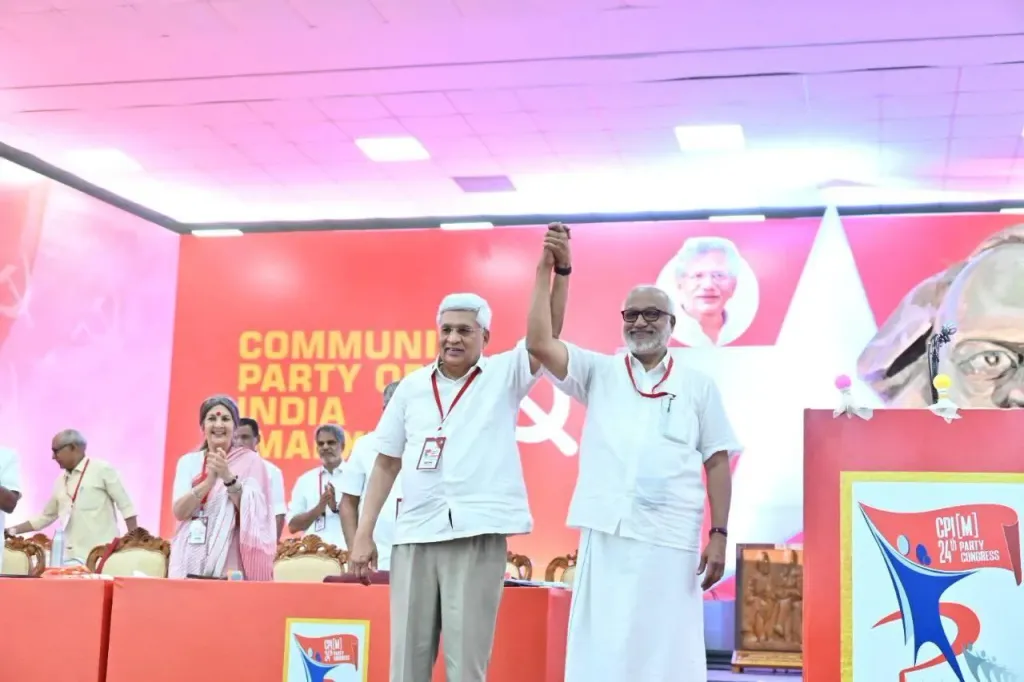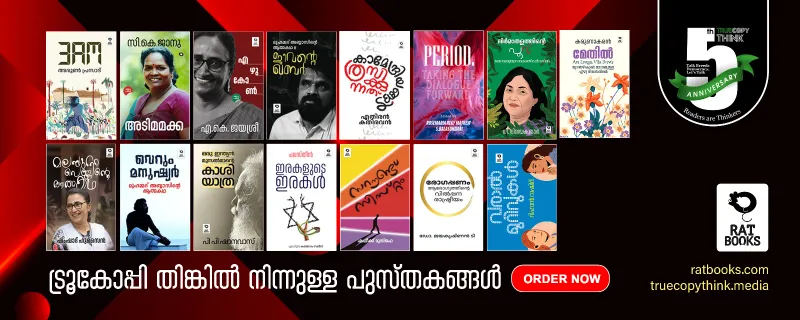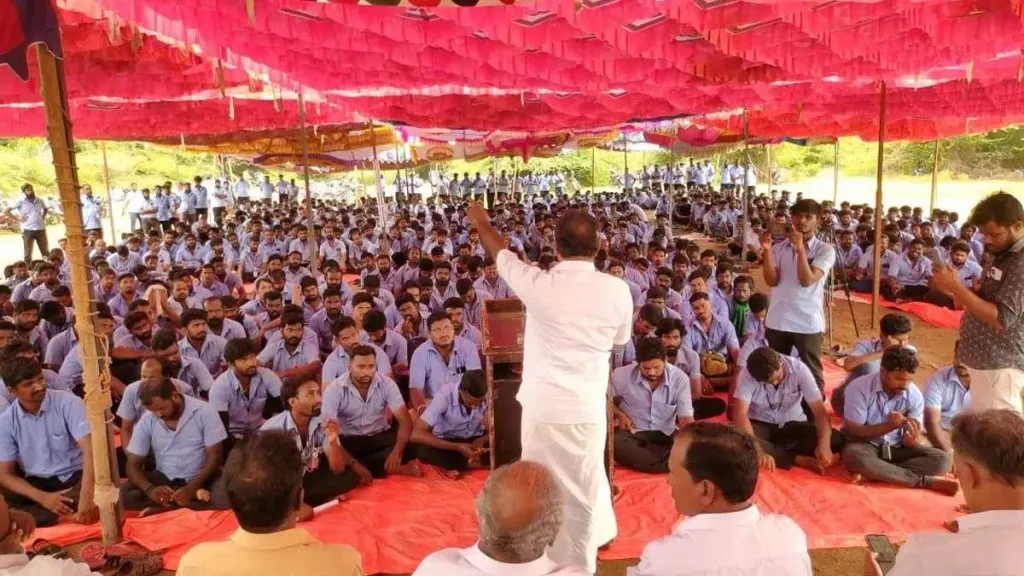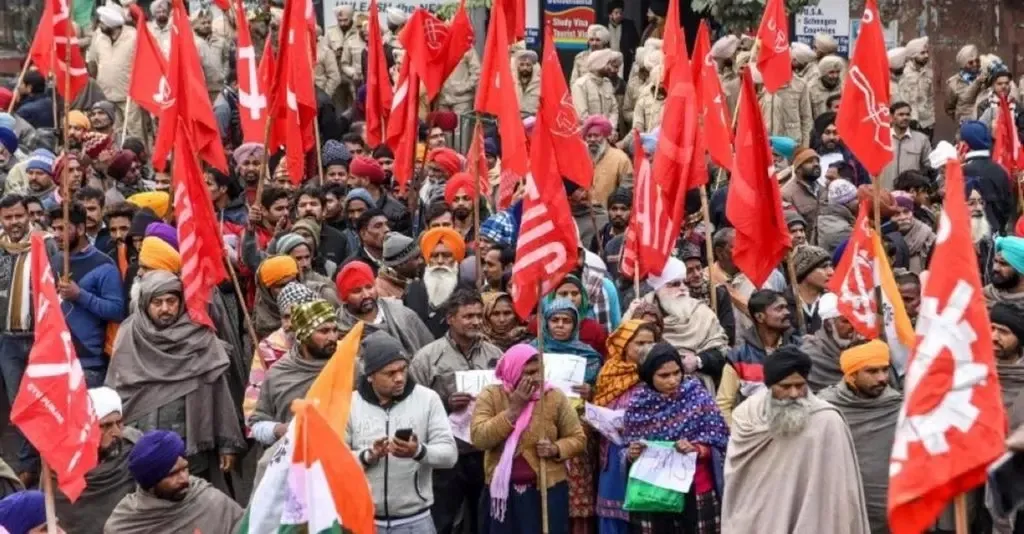While hearing a batch of petitions challenging the Waqf (Amendment) Act 2025, the Supreme Court on Wednesday proposed to pass an interim order with the following directions :
1. The properties declared by Courts as Waqfs should not be de-notified as Waqfs, whether they are by waqf-by-user or waqf by deed, while the Court is hearing the matter.
2. The proviso of the Amendment Act, as per which a Waqf property will not be treated as a Waqf while the Collector is conducting an inquiry on whether the property is a Government land, will not be given effect to.
3. All Members of the Waqf Boards and Central Waqf Council must be Muslims, except the ex-officio members.
The Court will hear the parties tomorrow at 2 PM on the aspect of interim order.
CJI Sanjiv Khanna said : "Our interim order will balance out equities. 1. We will say that whichever properties have been declared by the court to be waqf or held to be waqf will not be de-notified as waqfs or be treated as non-waqf properties, whether they are by waqf- by-user or waqf-by-declaration or otherwise...declared by Courts or otherwise also... 2. Collector can continue with the proceedings, but the proviso will not be given effect to. If he wants he can move an application before this Court and we can modify. 3. As far as the constitution of the board and council are concerned, ex officio members can be appointed, regardless of their faith, but the other members should be Muslims."
While CJI Khanna acknowledged that the general rule was against staying statutes, this case had an exceptional feature. "The exception which we feel in this case is this - once there is already a waqf-by-user, if it is to be denotified, it will have huge consequences." Regarding the inclusion of non-Muslim members, CJI noted that the Solicitor General himself admitted that the present membership of the Waqf Boards will continue till the end of their tenure. Also, the Central Waqf Council is not in existence now.
Although CJI Khanna was about to dictate the order, following the fervent requests by the Solicitor General of India and counsel for other respondents for a hearing before the interim order, the Court posted the matter tomorrow.
A bench comprising Chief Justice of India Sanjiv Khanna, Justice Sanjay Kumar and KV Viswanathan, which heard the matter for over two hours today, raised specific concerns about some of the provisions as follows :
1. Whether all waqf-by-user properties have ceased to exist as waqf?
2. How can waqf-by-user properties, existing for many centuries, be asked to register? CJI gave the example of the Jama Masjid in Delhi.
3. Is it fair to say that a property won't be regarded as a Waqf till the Government's authorised officer completes the enquiry into the dispute whether it is a government property?
4. How can Section 2A proviso override the Court's judgments which declare properties to be Waqf?
5. Whether after the new amendments, the majority of the members of the Central Waqf Council and the State Waqf Boards will be Muslims?
The Court also proposed to transfer to the Supreme Court the petitions from High Courts which challenge the Waqf Act 1995 for being heard together.
Court room exchange
As soon as the hearing commenced, CJI Khanna said, "Two aspects we want to ask- whether we should entertain the writ petitions or relegate to the High Court. Second, what are the points you want to argue? The second aspect may help us decide the first issue."
Since there were many petitioners involved, CJI said that he would call out the names of the lawyers to argue to maintain decorum.
Senior Advocate Kapil Sibal, began the submissions for the petitioners and summarised the argument as follows: "Through a Parliamentary Act, interference is made on the essential and integral parts of the faith. Many of these provisions violate Article 26 of the Constitution." He then referred to Section 3(r) of the Act (as amended), which introduces a condition that a person should establish that he was following Islam for at least 5 years to create a Waqf and that there was no "contrivance" in the dedication of the property. "If I want to set up waqf, I have to show the State I am practising Islam for 5 years. If I am born Muslim, why would I do that? Will the State decide how good or bad a Muslim I am? My personal law will apply." He also flagged the omission of 'waqf-by-user'. "Who are you to say there can't be a waqf-by-user?," Sibal asked.
He then flagged Section 3A (on Waqf-Al-Aulad). "Who is the State is to decide how the inheritance should happen?" Sibal asked. CJI Khanna then pointed out that as regards Hindus, the Parliament has enacted the Hindu Succession Act. "Article 26 does not bar the legislature from enacting laws. 26 is universal, secular, applies across all communities. Hindu Succession Act, Hindu Guardianship Act, etc, have been enacted," CJI Khanna said. Sibal said that inheritance applies only after the death of the person, and here, the State was interfering with the aspect during the life of the person.
Next, Sibal referred to the provision (Section 3C) that a property identified as a Government property would not be a Waqf property and that the Government's authority would decide the dispute. "An officer of the Government will be a judge in his own cause. This is per se unconstitutional," Sibal said.
Sibal next moved on to Section 3D which invalidates the creation of Waqf over ASI-protected monuments under the ASAMR Act. CJI then pointed out that as per the provision, if the property was a protected monument at the time of the creation of a Waqf, then such Waqf would be invalid.
"How many of such cases will be there?,"CJI Khanna asked. "Jama Masjid," Sibal replied. However, CJI said that the Jama Masjid was notified as a protected monument later.
"On my reading, the interpretation is in your favour. If it's declared as a waqf, before it was declared as an ancient monument, it would not make any difference. It will remain waqf, you should not be objecting unless after it's declared as protected, it cannot be declared as waqf. Most of the monuments, the ancient mosques, they will not be hit by this clause," CJI said.
Sibal next referred to Section 3E, which bars the creation of Waqf over properties of Scheduled Tribes. CJI then asked, are there not laws existing which bar the transfer of properties of tribal members. Sibal said that such laws do not prohibit the transfer of tribal properties to tribal members.
The next provisions (Sections 9, 14) flagged by Sibal were regarding the nomination of non-Muslims in the Central Waqf Council and the State Waqf Boards, which he said was a direct violation of Article 26. He said that the central law regarding Sikh Gurudwaras and many State laws on Hindu Religious Endowments do not permit the inclusion of persons of other faiths in the respective Boards. "It is a parliamentary usurpation of the faith of 200 million persons," he said. Also, after the amendment, the CEO of the Board need not be a Muslim. Sibal said that these provisions allow a "complete takeover of the Boards through nomination."
Objections were taken to the provisions mandating registration. "What is wrong with it?," CJI asked. Sibal said that presently, waqf-by-user can be created without registration. "You can register a waqf which will also help you to maintain a register," CJI said. Justice Viswanathan also weighed in saying, "if you have a deed, there won't be any bogus or false claims."
"They will ask us if there was a Waqf created 300 years ago, and to produce the deed. Many of these properties were created hundreds of years ago, and there won't be any documents," Sibal said. Sibal added that when the British came, many Waqf properties were entered in the register as belonging to the Governor General and after independence, the Government is staking claim over such properties.
Sibal also took exception to the application of the Limitation Act to the Waqf Act. CJI Khanna however, said, "You can't really say if you impose a period of limitation, it would be unconstitutional." Sibal said that the provision will legitimise encroachers of Waqf properties as they can now claim adverse possession.
Senior Advocate Rajeev Dhavan, for petitioners, said that Waqf is an essential and integral part of Islam, as charity is an essential and integral part of the faith. Senior Advocate AM Singhvi said that deletion of 'waqf-by-user' is dangerous, as about four lakh out of eight lakh properties are waqf-by-user, which have now become illegal with "one stroke of the pen."
CJI Khanna then said, "We have been told the Delhi High Court building is in Waqf land, the Oberoi hotel is in Waqf land. We are not saying that all waqf-by-user properties are wrong. But there are some genuine areas of concerns too."
Singhvi replied, "These are individual cases of abuse. But you can't throw the baby out with the bathwater." He argued that waqf-by-user has been judicially recognised in many decisions and without removing the basis of these decisions, the Parliament has deleted the concept. Singhvi also prayed for a stay of the Amendment Act, saying that some of the provisions are "pernicious" which would disturb the status quo continuing for many years.
Senior Advocate CU Singh said that if the Government lays a claim over a 300-year-old waqf property, then till the time the designated officer decides the dispute for 20-30 years, the property cannot be used as Waqf. Senior Advocates Sanjay Hegde, Rajeev Shakdher, Huzefa Ahmadi, Nizam Pasha, Shadan Farasat and P Wilson also made supporting arguments. Hegde said that it took a long Akali movement to ensure that Golden Temple was not controlled by non-Sikhs.
Union's arguments
Solicitor General of India Tushar Mehta, for the Union, highlighted that the law was enacted after an elaborate exercise by the JPC, which held meetings in different parts of the country and took views of stakeholders. SG emphasised that both houses of the Parliament passed the bill after a long debate.
CJI asked SG, "Are you now saying that waqf-by-user, even if established by judgments of the Courts or otherwise without dispute, are void now?"
In reply, SG started giving a background about the concept of 'Waqf'. "Waqf under the Islamic law means dedication of property to Almighty Allah for a charitable purpose. There has to be a waqif, who will say property has to be managed by a muttawali...this law does not come into the picture there. Waqf Board is different. This amendment does not touch the waqf itself," SG said.
Bench asks SG about status of waqf-by-user
Justice Viswanathan said that the nearest example is the Hindu Charitable Endowments Act. "Whenever it comes to Hindu endowments, it would be Hindus who would be governing," Justice Viswanathan said. SG said that the control would be by a Board which may consist of Hindus or non-Hindus. Justice Sanjay Kumar then asked the SG to give an example and said that the Tirupati temple board has no Hindus. SG then answered, "Charity Commissioner." Justice Kumar said that the bench is not talking about general trusts but religious endowments.
CJI then pointed out the provision regarding disputes with government and asked why the property should not be deemed as a waqf till the dispute is decided. "Why will it not remain a waqf property? Let the civil court decide that," CJI said.
"Mr Tushar Mehta, tell us. Waqf-by-user, if accepted prior to 2025 Act, is it now declared to be void or non-existent?" CJI asked pointedly.
"If registered, no(they will remain as waqf if they are registered)," SG answered.
CJI then sought clarity about the conditions - that the property must not be in "dispute". "Before the Britishers came, we did not have any registration. Many of the masjids are created in 14th or 15th centuries. To require them to produce a registered deed is impossible. Most of the cases, say Jama Masjid Delhi, the waqf will be waqf-by-user," CJI said.
"What prevented them from registering?" SG asked.
Justice Viswanathan then asked, "What if Section 3C is invoked by the Government saying it is government land?" CJI Khanna flagged the provision which says that the property won't be a waqf the moment the Collector starts investigating if it is a government land. "Is that fair?," CJI Khanna asked.
SG said that the use as a waqf is not stopped, and the provision only says that it won't get the benefits as a waqf in the meantime. "So if the property is generating rents, to whom the rent has to be paid?" CJI asked. SG said that the remedies before the Tribunal and the writ courts are available to the aggrieved party, and the provision only deals with the revenue entries. Every order passed under the Act is subject to judicial review, SG said.
CJI Khanna again repeated the question. "Is waqf-by-user now valid or not?"
SG said that if they are registered, they will be recognized and that registration was mandatory since 2013 .
Unconvinced, CJI asked : "This will be undoing something established by law. How will you register a waqf-by-user? There will be no registered documents. It will be difficult to register. You may have a point that it is misused. But there are genuine waqf-by-user also. I have gone through judgments of the Privy Council from 1920. If you are going to denotify waqf-by-user properties, it will be an issue."
Bench questions the amendment overriding Court declarations
CJI also questioned the SG about the proviso inserted to Section 2A, which says that a trust property won't be covered by the Waqf Act, notwithstanding any judgment of the Court.
"The legislature cannot declare any judgment or decree of court as void, you can remove the basis of law but you cannot declare any judgment or declare as not binding," CJI said.
"I don't know why those words have come. Ignore that part. There is a large section of Muslims who dont; want to be governed by Muslim Board. If a Muslim wants to do charity, he can do that through Trust," SG replied.
Bench questions inclusion of non-Muslims in Boards
During the hearing, the CJI questioned the provisions of the Amendment Act (Sections 9 and 14) allowing the nomination of non-Muslims in the Central Waqf Council and the State Waqf Boards. The CJI asked if Muslims could be included in the Boards governing Hindu religious endowments.
CJI asked: "Mr Tushar Mehta, are you arguing that as far as the Hindu endowments or Hindu religious bodies are concerned, you will allow minorities, including Muslims to be a member of the Board or Council? Please say that very openly."
While taking the bench through the provision, SG made a comment which irked the bench. SG said "Going by their logic, then your lordships can't also hear this matter."
CJI Khanna sternly said,"No, sorry Mr. Mehta we are not talking just about adjudication. When we sit over here, we lose our religion, we are absolutely secular. For us, one side or the other side is the same. But then, when we are dealing with a Council looking after the religious affairs, issues may arise. Let's say, in a Hindu temple tomorrow, a receiver is to be appointed or there is an endowment trust ...all of them have Hindu are members of that Governing Board...How are you comparing it with judges, saying judges should be from different communities or background."
SG asserted that the majority of the composition of the Board would be Muslims and the non-Muslims wouldn't be more than 2. Justice Kumar, however said that the proviso to the Section does not say that only two members would be non-Muslim and stated that the SG's argument was "militating against the statute."
SG stated that he would file an affidavit and said that the present composition of Boards will continue till the end of their term.
CJI also raised concerns about the proviso to Section 2A. "Where public trust has been declared as waqf, say 100 or 200 years back, you turn about and say it is not waqf...You cannot rewrite the past of 100 years back!," CJI Khanna said.
More than 70 petitions have been filed challenging the 2025 Act, and one petition has been filed challenging the Parent Act, the Waqf Act, 1995. Intervention applications have been filed by five BJP-led States: Assam, Rajasthan, Chhattisgarh, Uttarakhand, Haryana and Maharashtra, supporting the legislation.
The first ten petitions that were initially listed for hearing are by AIMIM MP Asaduddin Owaisi, Delhi AAP MLA Amanatullah Khan, Association for Protection of Civil Rights, Jamiat Ulema-i-Hind President Arshad Madani, Samastha Kerala Jamiatul Ulema, Anjum Kadari, Taiyyab Khan Salmani, Mohammad Shafi, Mohammad Fazlurrahim and RJD MP Manoj Kumar Jha.
Common provisions challenged in all petitions
Omission of 'waqf by user' provision, inclusion of non-Muslim members in the Central Waqf Council and State Waqf Board, limiting the inclusion of women members to two in the Council and Boards, pre-condition of 5 years as practising Muslim for create of waqf, diluting waqf-alal-aulad, renaming 'Waqf Act, 1995 to "Unifed Waqf Management, Empowerment, Efficiency and Development," appeal against the Tribunal's order, allowing Government to disputes regarding encroachment of government property, application of Limitation Act to Waqf Act, invalidating Waqf created over ASI protected monuments, restrictions on creating Waqfs over scheduled areas etc., are some of the provisons under challenge.
Live updates from today's hearing can be read here.
Case Details: ASADUDDIN OWAISI v. UNION OF INDIA|W.P.(C) No. 269/2025 and others
https://www.livelaw.in/top-stories/waqfs-declared-by-courts-shouldnt-be-affected-supreme-court-proposes-to-pass-interim-order-on-waqf-amendment-act-challenge-289528


